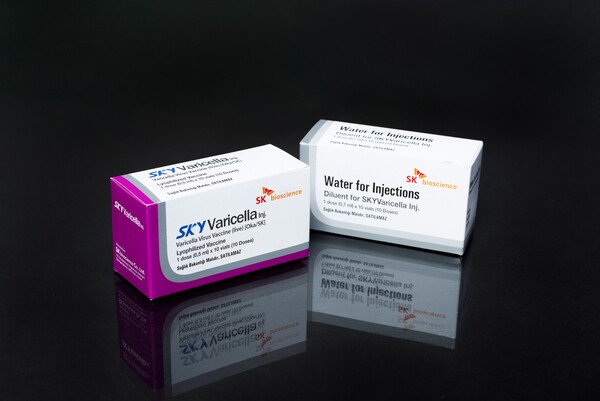SK bioscience said it has submitted an application for a global phase 3 clinical trial to the Ministry of Food and Drug Safety to evaluate a two-dose regimen of its varicella vaccine, SKYVaricella, as part of efforts to strengthen the competitiveness of its proprietary vaccine portfolio in overseas markets.

The late-stage study will enroll about 800 children aged 12 months to 12 years in Korea and abroad. Participants will receive two doses of SKYVaricella, with the trial assessing both immunogenicity and safety. The company aims to complete the study by 2027.
Since its launch in Korea in 2018, SKYVaricella has become a key growth driver for SK bioscience. It obtained World Health Organization (WHO) prequalification (PQ) certification in 2019, the world’s second varicella vaccine to do so, enabling its entry into the international procurement market.
To date, more than 5 million people worldwide have received the vaccine. It has been supplied through Korea’s National Immunization Program and private hospitals, as well as international tenders by organizations such as the Pan American Health Organization (PAHO). Earlier this year, SK bioscience signed an extended supply agreement with PAHO covering 2025 to 2027.
By developing the two-dose regimen, SK bioscience expects to accelerate its global expansion in the varicella vaccine market.
Although a single dose has been widely adopted to reduce incidence and complications of varicella, breakthrough infections can occur over time. To address this, international immunization guidelines have shifted toward a two-dose schedule to provide stronger and longer-lasting protection while reducing community transmission.
The WHO’s Strategic Advisory Group of Experts (SAGE) formally recommended the two-dose schedule in March. Demand in the global procurement market has since risen sharply.
Countries such as the U.S., Germany, and Japan have already integrated two doses into their national immunization programs. The U.S., which introduced the two-dose regimen in 2006, has reported an over 85 percent decline in varicella incidence.
Market research firm Global Market Insights projects that the global varicella vaccine market will grow from about $3.4 billion in 2024 to around $6.3 billion in 2034, representing an annual growth rate of 6.5 percent.
“SKYVaricella’s two-dose regimen is a strategic pipeline leveraging our WHO PQ experience and R&D capabilities,” SK bioscience Head of Clinical Research and Regulatory Ryu Ji-hwa said. “We will complete development swiftly based on production stability and strong immunogenicity, aiming to secure competitiveness in the global market.”
Related articles
- SK bioscience files IND for global phase 3 study of 2-dose varicella vaccine
- SK bioscience, Gates Foundation discuss expanded global health collaboration during Bill Gates’ Korea visit
- SK bioscience takes on Pfizer, MSD with late-stage pneumococcal vaccine
- SK bioscience, Sanofi land China trial nod for world’s broadest pediatric pneumonia vaccine
- SK bioscience and Hilleman Laboratories strengthen global vaccine partnership during executive visit
- SK bioscience Q3 sales nearly tripled thanks to greater contribution by German offshoot
- GC Biopharma submits IND application for P3 trial of varicella vaccine in Vietnam

